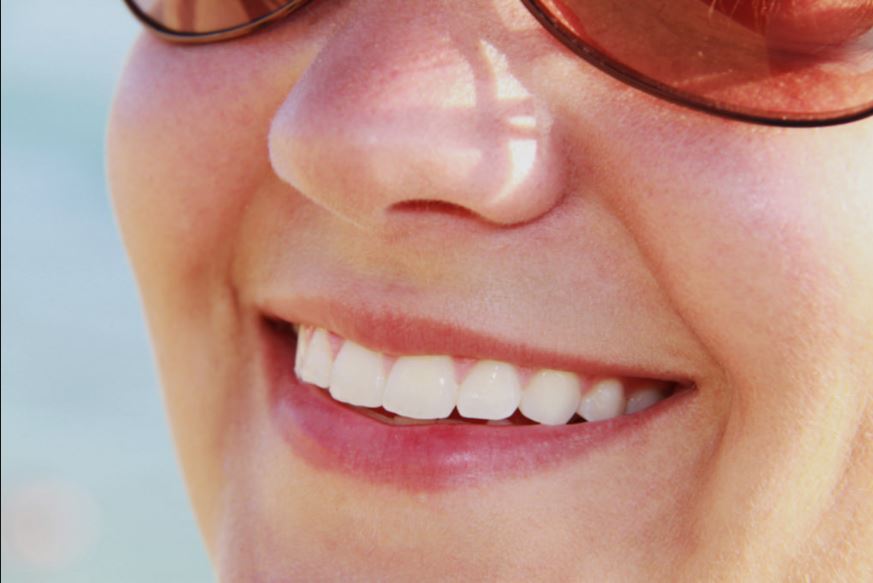If you’re trying to brighten your smile, there are many ways you can do it. Today’s market is riddled with toothpastes that use varying methods to whiten your teeth, all without breaking from your regular brushing routine. One of these fads, however, is activated charcoal. The idea behind it is that the charcoal soaks the stains out of your teeth, which, to a very minor extent, it can. However, you may find that putting charcoal in your toothpaste is more hazardous than helpful.

Activated Charcoal Can Damage Your Enamel
In industrial applications, activated charcoal is a mild abrasive. It can polish and shine even some metals, and is especially effective against grout. While your enamel is the strongest substance in your body, it cannot hold up against that kind of abrasion, particularly on a daily or even weekly basis. The early signs of damage to your enamel is tooth sensitivity, whether it be to pressure or to the cold. Your enamel can repair itself at this stage if caught early, but only if you stop using the charcoal immediately, switch to a soft-bristled toothbrush if you haven’t been using one already, and see a dentist. They can advise you on what minerals to increase in your diet to help your enamel rebuild itself, and suggest treatments to speed up the process. Left untreated, the sensitivity will worsen and your teeth will develop cavities and, eventually, the nerve of the tooth could become entirely exposed and your tooth could die.
Your Teeth May Turn MORE Yellow
You may think that using activated charcoal on a temporary basis will whiten your teeth without the negative effects on your enamel. Well, unfortunately, activated charcoal can’t even do that. When you scrub with an abrasive substance against your teeth and wear away the enamel, as discussed, you end up exposing the dentin beneath. Dentin is a yellow tissue, so the thinner your enamel layer is, the more yellow you’ll see. Not only that, but there is a chance that charcoal can actually create a dark spot in your teeth in the event that the particles get trapped in the fine cracks in your enamel.
It’s Really Bad for Your Plumbing
Your teeth aren’t the only things that get damaged. Using activated charcoal can cause serious damage to your plumbing system, as well. Charcoal does not dissolve in water, and so when you spit out that toothpaste into the sink, little particles of charcoal can collect along the lining of the pipes, causing damage both from the abrasion as well as increasing the likelihood of clogging. Even if the amount seems insignificant, that charcoal coating gives other particles and objects something to latch onto, creating a breeding ground for bacteria and an ever-growing clog in your system. When you get an awful smell from your drains from the bacteria, or experience increased incidences of clogging, you need to call a residential plumber to come and do a pipe cleaning to flush out the charcoal and other material. While your system may not show immediate damage after draining charcoal, years of using charcoal, or even months, can cause major problems for the system.
Charcoal May be More Expensive
Even though some people may see using charcoal as a cheaper alternative to other whitening agents, it is actually more expensive in the long run. Not only are products that contain activated charcoal more expensive than the standard toothpastes, but the damage they cause also contributes to costs later on. Common, non-whitening toothpaste contains fluoride that protects your teeth and enamel, whereas charcoal toothpaste wears away both at fluoride layers and at the teeth themselves. Combine that with the yellowing that they cause, you’ll find that you are paying a lot of money for less than no results. If you really want your teeth to be whitened in a way that is safe for your teeth and won’t cost you more later on, you need to talk to a professional dentist about getting a proper whitening treatment, and consume minerals in your food that will contribute to the strength of your enamel and replace the stained substance in the pores of your teeth.
Long-term Effects Aren’t Widely Known
Even though activated charcoal is widely used in both toothpastes and cosmetic products, there are not nearly enough studies on the use of it in your body. Some preliminary studies suggest that the charcoal, when accidentally ingested, can cause damage to your organs and linger in your body rather than pass through with other waste. In general, it is widely advised to avoid ingesting charcoal, but small amounts of it will be ingested if you use it regularly in your toothpaste. Avoid putting anything in your mouth that you don’t want contaminating your body, and toss out that expensive toothpaste.
It’s important to always be careful and knowledgeable about what you use to brush your teeth. A whitener should be made of materials that are safe to put in your mouth and should have approval from a dental professional. Avoid using abrasive methods to clean your teeth, such as charcoal toothpastes or hard-bristled brushes, and put the health of your teeth before their color. When you want to improve the shade of your teeth, always consult with a dentist first to make sure you aren’t doing yourself more harm than good.
Emma Sturgis
Recent Posts
- Castor Oil For Better Hair Growth: Is It Myth Or Fact?
- Exploring the Differences Between Sermorelin, Ipamorelin, Ibutamoren, GHRP2, and GHRP6: Understanding Their Role in Human Growth Hormone Regulation
- Unraveling the Mystery: Understanding the Causes and Prognosis of Ventricular Tachycardia Without Apparent Heart Disease
- Understanding Grandparents’ Rights in Oklahoma: Navigating Visitation and Legal Protections
- 10 Reasons to Consider Hypnotherapy for Your Health

